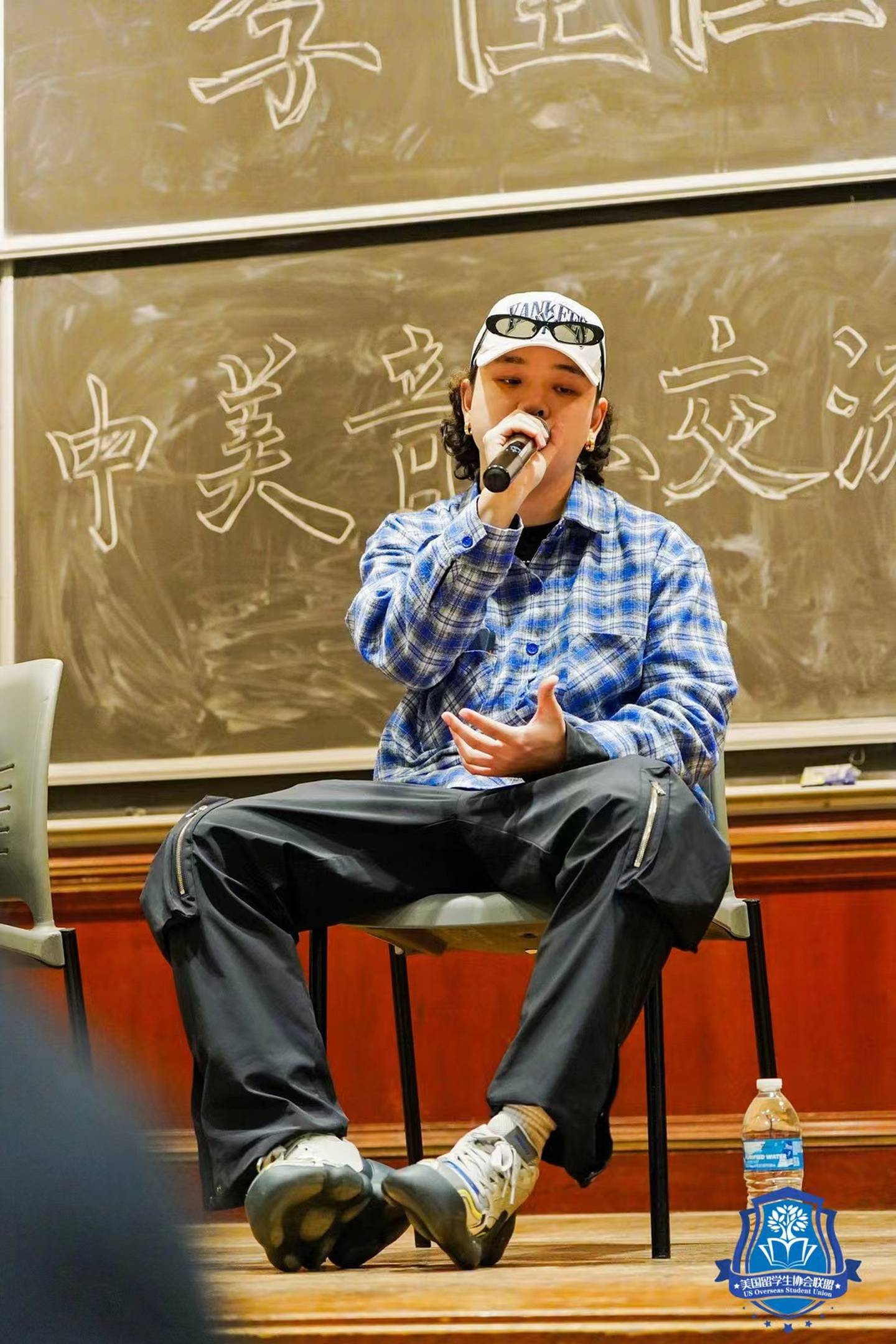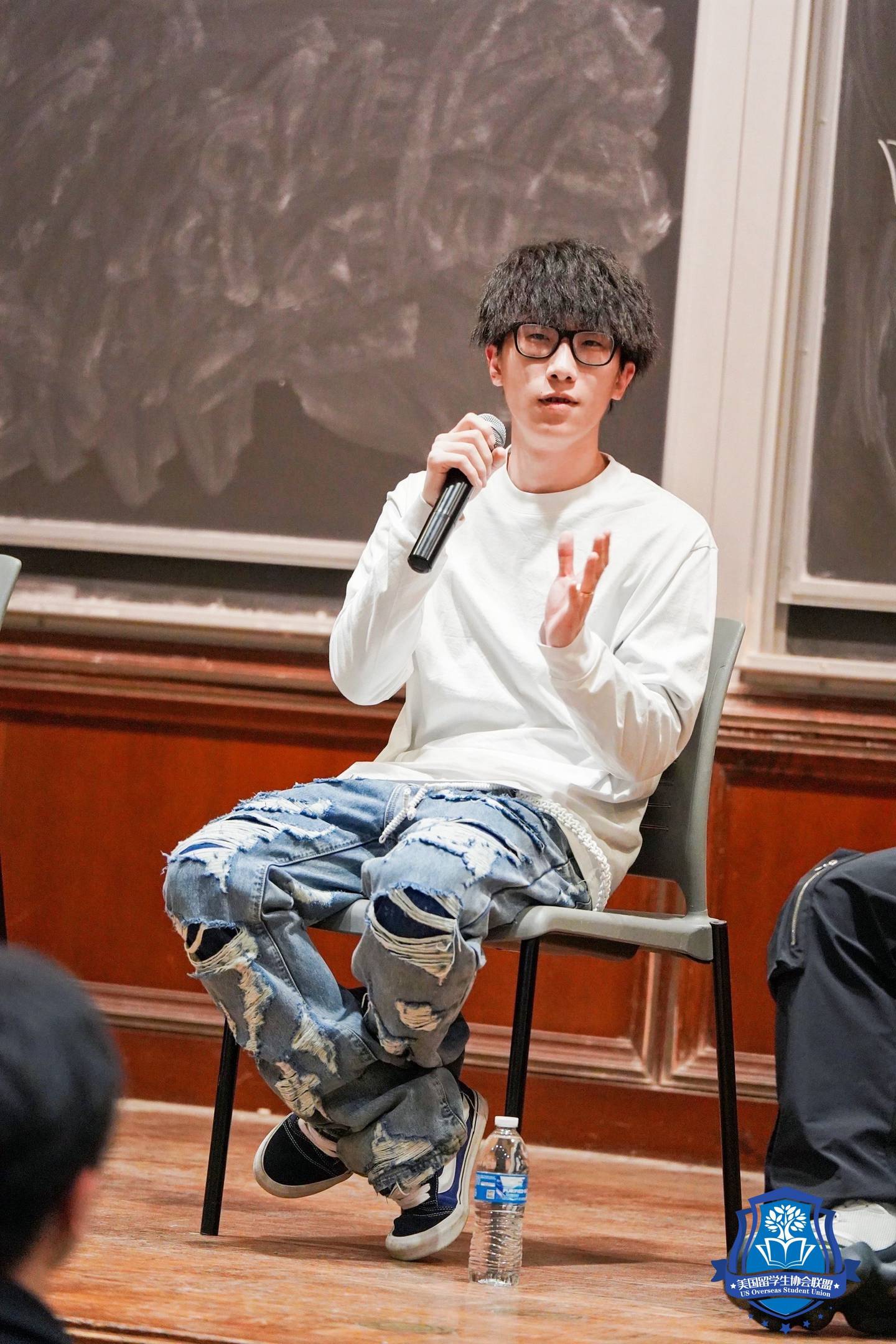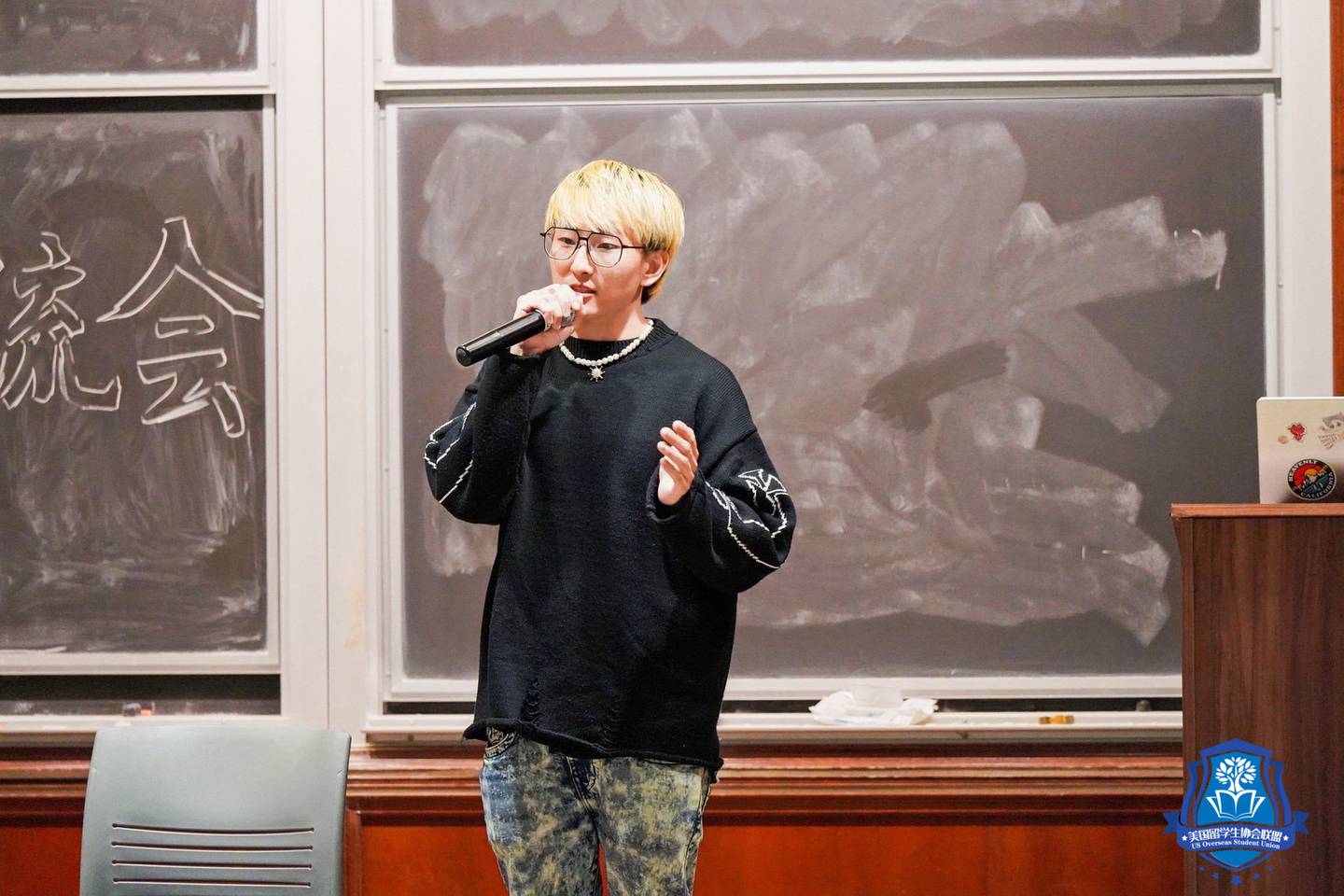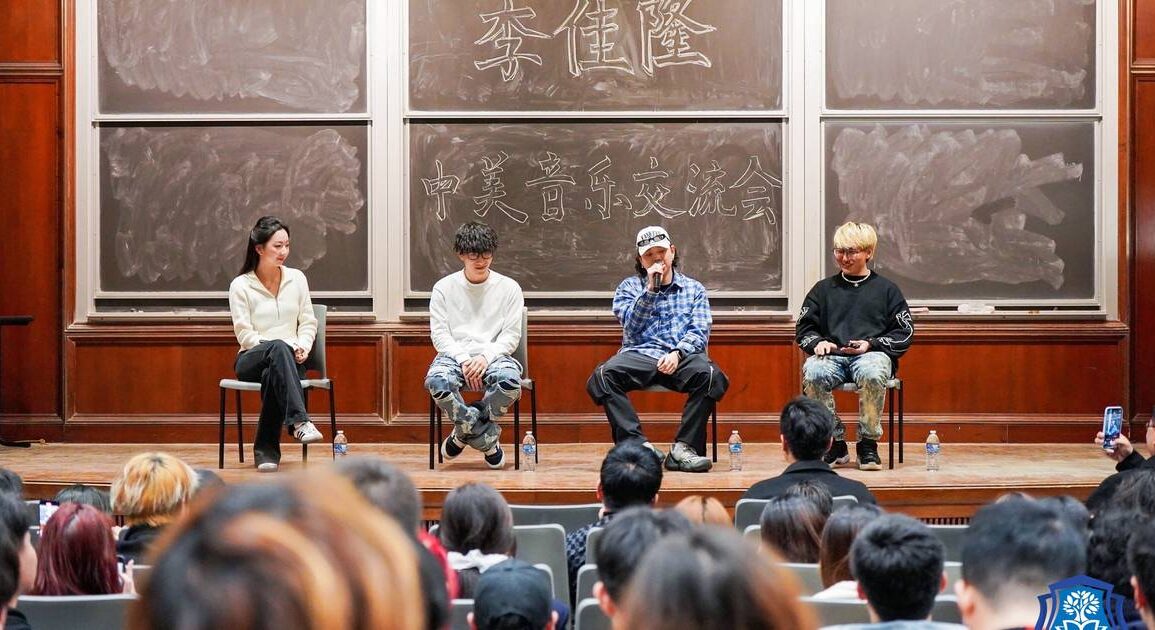On February 21, rapper Jialong Li (李佳隆), also known as JelloRio, and music producer Lennox子昂, held a face-to-face event with hundreds of Chinese international students at UCLA about hip-hop, culture, and music. Li is a Chinese mainland rapper and was the champion of “The Rap of China” in 2020, a Chinese rap reality show that first aired in 2017.
At the event, Li (JelloRio) stressed that rap music is a powerful means of expression, but reaching this current stage also necessitates the integration of one’s own culture and content.
“Rap culture originated from the United States, so when I initially started making rap music, I drew a lot from rappers here,” said Li. “But at this stage, I want to create something different, something that can represent our own culture, something with a Chinese flair, because making art requires having your own unique features. Blindly imitating others is meaningless.”
Li expressed at the event that music has the power to transcend language and culture, and that conveying culture has gradually become his goal in making music.
“When I first started making music, it might have been mainly for the enjoyment of the music-making and playing process,” he said. “But now, after gaining some influence, my aim is to integrate some Chinese culture into the music, creating works that can be presented to foreign audiences.”

Lennox expressed that mixing traditional Chinese instrumentation and culture into music is a significant challenge for Chinese artists.
“Utilizing Chinese style and traditional Chinese music, and integrating Chinese musical elements into Western art forms is something I am also pursuing at this stage,” said Lennox. “For example, Sichuan trap was very popular when it first came out.”
Sichuan trap is a subgenre of trap music that emerged from the Sichuan province in China. Trap music originally comes from the Southern United States and is a form of hip-hop characterized by its lyrical content and sound, which includes 808 kick drums, hi-hats, synthesizers, and the “trap” beat pattern.
Sichuan trap incorporates these elements but is distinguished by its use of local Chinese cultural elements, including Sichuan dialect, traditional Chinese instruments, and references to Sichuan culture and lifestyle.
It has gained popularity in China and among global audiences interested in international hip-hop scenes, showcasing how local artists adapt global music trends to reflect their unique cultural backgrounds. Artists within this genre may blend traditional Chinese music with the aggressive and rhythmic beats of trap, creating a unique sound that resonates with both local and international listeners.
However, according to Lennox, there are differences between China and the United States when it comes to the music market and work environment.
“The industry standards for music production in the United States are different in China,” said Lennox. “One important difference is speed, such as being able to produce a beat for artists to use in a very short time. Chinese artists, on the other hand, prefer to collect beats and then have their own time and space to express themselves.”

Lennox also mentioned that the Chinese rap market is still growing, which is valuable for artists pursuing their original goal.
“The Chinese music market is at an earlier stage compared to the American music market, with fewer clear rules,” said Lennox. “This leads to many clients making excessive commercial demands on artists, so for music producers, balancing the market value of music and what the music itself wants to express is very important. Artists need to be guided in a good direction. For artists, maintaining the original intention is very important. There will always be many obstacles and temptations in music production, so those who can keep their original intention are very respectable.”

The event was co-hosted by dop music, U.S. Southwestern Chinese Students and Scholars Association (美西南学联 SWCSSA), US Overseas Student Union (美国留学生协会联盟 USOSU), UCLA Chinese Students and Scholars Association (加州大学洛杉矶分校中国学生学者联合会 CSSA), and USC Chinese Students and Scholars Association (南加州大学中国学生学者联合会CSSA), providing international students with the opportunity to engage with artists and participate in cultural exchanges.
All the group representatives expressed their agreement on the significance of the event and their anticipation for future cultural exchange activities.
The founder of dop music, Boyang Shi (dopBS) said, “Through Jialong Li’s sharing and his personal struggle story, we hope to convey a message: Whether it’s music or any form of art, it’s an important way to cross cultural barriers and connect people from different backgrounds. Hip-hop culture, as a global cultural phenomenon, does not belong to any one country or region; it is the common language of young people around the world. We hope this event will serve as a platform to inspire thought, encourage innovation, and promote Sino-US cultural exchange, allowing more young people to express themselves bravely and pursue the realization of their self-worth. Moreover, we look forward to such exchanges deepening the mutual understanding and respect between the younger generations of the two countries, jointly promoting the development of global cultural diversity.”
This post was originally published on this site be sure to check out more of their content.







